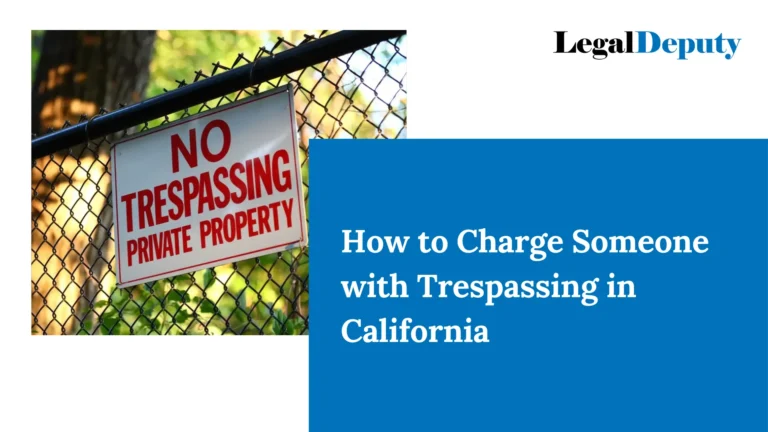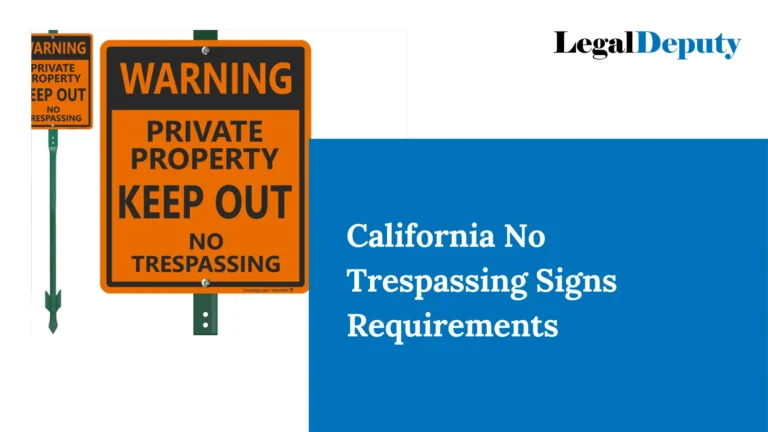How To Get Custody Of Grandchild In California : A Step-By-Step Guide
In the golden state of California, the bonds between grandparents and grandchildren are cherished and celebrated. Yet, sometimes life throws unforeseen challenges our way, leaving grandparents wondering how to secure custody of their beloved grandkids.
It’s a topic close to the hearts of many in the Golden State, where the warmth of family ties is as legendary as the sunshine. Grandparents in California facing the complex process of seeking custody deserve clear guidance and support.
In this guide, we will illuminate the path, offering a roadmap to navigate the intricate landscape of California’s family law, making sure that those seeking to protect their grandchildren’s best interests can find the legal clarity and reassurance they need.
Understanding the Legal Framework
In the state of California, understanding the legal framework is your first step toward gaining custody of your grandchild. It’s essential to recognize the legal foundation on which your case will be built.
The Legal Basis:
Seeking custody of a grandchild in California primarily hinges on ensuring the child’s best interests. The courts prioritize the well-being, safety, and stability of the child. Your case may be rooted in various circumstances, such as a parent’s inability to provide a safe environment, substance abuse issues, or a child’s exposure to neglect or abuse.
California’s family law system recognizes that sometimes, grandparents are best equipped to provide a loving, stable home.
California Laws and Regulations:
Understanding the relevant laws and regulations in California is crucial. California Family Code Sections 3000 to 3400 play a pivotal role in defining the legal framework for grandchild custody.
These laws outline the factors that the courts consider when determining custody arrangements, emphasizing the child’s physical and emotional well-being. Additionally, California courts take into account the existing relationship between the grandparent and the child when making custody decisions.
Moreover, it’s important to be aware of the Uniform Child Custody Jurisdiction and Enforcement Act (UCCJEA), which helps resolve jurisdictional issues in cases involving children who have lived in different states. Comprehending these laws and regulations will equip you with the knowledge to navigate the legal process effectively.
While the legal framework is crucial, it’s also essential to remember the human element in this process. Emotions run deep when it comes to family matters, and the well-being of your grandchild is your top priority. The legal system is here to support that, ensuring that your grandchild’s best interests are at the forefront of the decision-making process.
In the journey to secure custody, it’s not just about understanding laws and regulations; it’s about preserving the bond between you and your grandchild and providing them with a safe and loving environment. This combination of legal knowledge and emotional connection can be a powerful force in the pursuit of custody in California.
Eligibility Criteria
Eligibility criteria serve as the compass guiding grandparents through the intricate process of gaining custody of their beloved grandchild in California. Ensuring the child’s best interests and safety takes precedence.
Conditions and Requirements:
To embark on this journey, it’s vital to meet specific conditions and requirements set forth by California’s family law. First and foremost, you must demonstrate that custody with the grandparents is in the best interests of the child.
Factors such as the child’s age, physical and emotional needs, and their established relationship with the grandparents are all considered by the courts. Additionally, California law places a strong emphasis on the safety and well-being of the child.
Grandparents seeking custody must provide evidence that the child’s current living situation with their parents is harmful, unstable, or detrimental to their growth and development. This may include instances of neglect, abuse, substance abuse issues, or the inability of the parents to provide a stable home environment.
Prioritizing the Child’s Best Interests:
Throughout the entire process, the child’s best interests remain at the heart of the matter. The court will thoroughly assess the circumstances, weighing various factors to determine what will serve the child’s well-being most effectively. Your case should emphasize how the child’s physical, emotional, and mental needs will be met more effectively in your custody.
While the eligibility criteria lay out the legal requirements, never lose sight of the human element. Your deep love and concern for your grandchild’s welfare are what drive your pursuit of custody. This emotional connection, combined with your understanding of the legal criteria, forms a powerful foundation. It ensures that the child’s best interests and safety are not just legal considerations but the genuine motivations behind your efforts.
Remember, this journey is not only about fulfilling legal requirements; it’s about providing a loving, secure environment for your grandchild to thrive and grow.
Types of Custody
Understanding the various types of custody is crucial in your quest to secure your grandchild’s well-being in California. It’s not a one-size-fits-all solution, and the courts recognize the unique dynamics of each family.
1. Sole Custody:
Sole custody, as the name suggests, grants one parent or guardian exclusive legal and physical custody of the child. In the context of grandparent custody, this means that the child primarily resides with the grandparents, and they make key decisions regarding the child’s upbringing. It’s typically awarded when the other parent is deemed unfit or unable to provide a safe environment for the child. For grandparents, this can provide the stability and consistency needed to ensure the child’s best interests.
2. Joint Custody:
Joint custody involves shared legal and physical custody between two parties. This arrangement allows both parents, or in the case of grandparents, a grandparent and a parent, to share decision-making responsibilities and parenting time. It’s essential for the child’s best interests, fostering ongoing relationships with both parties. Grandparents seeking joint custody should emphasize their ability to collaborate and provide a loving, cooperative environment for the child.
3. Visitation Rights for Grandparents:
In cases where full custody may not be feasible, grandparents can seek visitation rights. While California acknowledges the importance of maintaining relationships between grandparents and their grandchildren, visitation rights are typically awarded if it’s in the child’s best interests. The court assesses the child’s welfare, the previous relationship with the grandparents, and the potential impact on the child’s life.
Choosing the right type of custody isn’t solely a legal decision; it’s a deeply personal one. Your desire to provide the best possible environment for your grandchild is driven by love and concern.
The legal options available allow you to tailor the arrangement to what best suits your family dynamics and, most importantly, the child’s welfare. Remember, it’s not just about the legal terms; it’s about ensuring your grandchild’s happiness and stability.
Each type of custody serves a unique purpose, and your choice should reflect your dedication to creating a nurturing, loving environment for your grandchild.
Filing for Custody in California
Initiating the custody process in California is a significant step towards providing your grandchild with a stable, loving home. Understanding the steps and the necessary legal documents is crucial in your journey.
Step 1: Seek Legal Guidance
Before diving into the legal process, it’s advisable to consult with an experienced family law attorney. They can provide invaluable advice and guidance tailored to your unique situation. While the law is there to support you, legal expertise ensures that you’re navigating the process effectively.
Step 2: Petition for Custody
Filing a formal petition with the court is the next critical step. This document outlines your request for custody and provides the court with essential information about your situation. The court will require specific details, so it’s essential to be thorough and accurate.
Step 3: Serve the Other Party
If the other parent is involved in the case, you’ll need to properly serve them with legal notice. This ensures that they are aware of the proceedings and have an opportunity to respond.
Step 4: Attend Court Hearings
The court will schedule hearings to review your case. These hearings provide an opportunity for both parties to present their arguments and evidence. It’s vital to be well-prepared and to work closely with your attorney to build a compelling case that demonstrates the child’s best interests.
Step 5: Collect Supporting Documents
Gathering evidence that supports your case is essential. This may include documents such as character references, medical records, school records, or any evidence demonstrating the other parent’s inability to provide a safe environment.
Step 6: Work with a Mediator
Mediation may be part of the process, where a neutral third party helps both parties reach an agreement. While mediation is not always required, it can be a valuable tool in reaching a resolution that prioritizes the child’s best interests.
Filing for custody is not just a procedural matter; it’s a deeply personal and emotional journey. Your dedication to your grandchild’s well-being is what fuels this process. You are not just navigating legal steps; you are taking the steps necessary to provide a safe, loving, and secure environment for your grandchild to thrive.
Remember, you’re not alone in this journey. Legal professionals are here to guide you, and your love and commitment are the driving forces behind your pursuit of custody.
Proving Your Case
Building a compelling case for custody is central to your pursuit of providing a stable and loving environment for your grandchild. Highlighting the child’s welfare, your relationship with them, and any relevant extenuating circumstances can be pivotal.
The Child’s Welfare:
The paramount consideration in any custody case is the child’s welfare. To prove your case, it’s crucial to demonstrate how your custody arrangement will best serve the child’s physical, emotional, and mental well-being. Provide evidence, such as school records, medical records, and character references, that illustrate your commitment to nurturing their growth and ensuring their safety.
Your Relationship with the Child:
Highlight the depth and quality of your relationship with your grandchild. Emphasize your involvement in their life, the love and emotional support you provide, and the role you play in their daily routine. The court values the stability and continuity you can offer as a grandparent.
Extenuating Circumstances:
In some cases, extenuating circumstances may further strengthen your case. These could include evidence of a parent’s substance abuse, neglect, or abusive behavior. If such issues exist, present documented proof to support your claims. It’s essential to focus on how these circumstances impact the child’s well-being and why your custody is the best solution.
Behind every legal document and piece of evidence, there’s a profound human connection. It’s the love, care, and commitment you have for your grandchild that drives your case. The legal process is not a cold, bureaucratic system; it’s a means to protect and enhance the well-being of your loved one.
While presenting your case, remember to convey the emotional bond you share with your grandchild. The court recognizes that the child’s happiness is intricately tied to their connection with you. Your pursuit of custody is a testament to your love and dedication.
Legal Assistance
Seeking legal assistance is a pivotal step in your journey to secure custody of your grandchild in California. The guidance of an experienced attorney can be your most valuable asset in this intricate process.
The Importance of Legal Guidance:
The complexities of family law in California demand specialized knowledge and expertise. Grandchild custody cases involve a myriad of legal intricacies and nuances, and having a skilled attorney by your side can make all the difference. An attorney can help you understand the laws, navigate the court system, and advocate for your rights and the best interests of your grandchild.
Finding the Right Lawyer:
When seeking an attorney for your grandchild custody case, consider the following tips:
Experience in Family Law: Look for an attorney with extensive experience in family law, especially in cases involving grandparents seeking custody. Their familiarity with relevant laws and regulations is invaluable.
Reputation and Reviews: Research potential lawyers and read reviews from past clients. A lawyer’s reputation can provide insight into their capabilities and dedication to their clients.
Personal Compatibility: Your relationship with your attorney is crucial. Ensure you feel comfortable communicating with them and that they understand your unique situation.
Clear Communication: A good attorney should be able to explain complex legal matters in a way that you can understand. Clear communication is vital in making informed decisions.
Fee Structure: Discuss the attorney’s fee structure and ensure it aligns with your budget. Many lawyers offer free initial consultations, which can help you evaluate their services.
The Human Element: While legal assistance is about expertise and professionalism, it’s also about having a compassionate ally in your corner. Your attorney is not just there to navigate the legal intricacies; they’re there to understand your love for your grandchild and your unwavering commitment to their well-being.
Your pursuit of custody is not just a legal journey; it’s a testament to the powerful bonds of family. Your attorney is your partner in ensuring that the child’s best interests are protected and that they can thrive in a loving and secure environment.
Mediation and Court Hearings
The journey to secure custody of your grandchild often involves mediation and court hearings. Understanding these processes and how to prepare is essential in your pursuit of providing the best environment for your loved one.
Mediation Process:
Mediation is a valuable tool in custody cases. It involves a neutral third party, known as a mediator, who assists both parties in reaching an agreement. Mediation is designed to facilitate communication and cooperation, with the ultimate goal of creating a custody arrangement that prioritizes the child’s best interests.
During mediation, you and the other party (which may be the parent or another interested party) will discuss various aspects of the custody arrangement, such as visitation schedules and decision-making responsibilities. The mediator will help guide the conversation and work towards a mutually acceptable agreement. Mediation can be a constructive way to resolve differences without the need for a lengthy court battle.
Court Hearings and What to Expect:
Court hearings are a formal part of the custody process. Here’s what you can typically expect:
Case Presentation: Both parties will present their case, and you’ll have an opportunity to share your perspective, provide evidence, and address any concerns related to your grandchild’s welfare.
Legal Arguments: Your attorney (if you have one) and the opposing party’s attorney will present legal arguments. The judge may ask questions or seek clarification on various issues.
Decision Making: The judge will carefully evaluate the evidence, your case, and the child’s best interests. They will make a decision based on the law and the facts presented.
How to Prepare:
Preparing for court hearings is crucial. Here are some tips:
Gather Evidence: Collect all relevant documents and evidence that support your case. This may include records of your relationship with the child, school records, medical records, and any evidence related to the child’s safety and well-being.
Consult Your Attorney: Work closely with your attorney to build a compelling case. They can help you prepare for the hearing and ensure you’re presenting a strong argument.
Maintain a Child-Centric Focus: Keep the child’s best interests at the forefront of your case. Highlight how your custody arrangement will provide them with a loving, stable, and secure environment.
While mediation and court hearings are legal processes, they’re deeply intertwined with the emotional bonds between you and your grandchild. These proceedings are not just about legalities; they’re about safeguarding the happiness and future of your loved one. Your presence, dedication, and commitment to their well-being are what truly matter throughout this journey.
Remember, the legal system is here to protect those cherished bonds and to ensure that your grandchild can flourish in a loving and supportive environment.
Grandparent’s Rights
In California, grandparents have rights and responsibilities that play a significant role in ensuring the well-being of their grandchildren. Understanding these rights, especially in terms of visitation and guardianship, is essential.
1. Visitation Rights
California recognizes the importance of maintaining the relationship between grandparents and their grandchildren. Grandparents have the legal right to seek visitation with their grandchild in certain circumstances. The court may grant visitation if it is in the child’s best interests and does not interfere with the parent’s rights. Visitation rights provide an avenue for grandparents to continue fostering a loving, supportive connection with their grandchild.
2. Guardianship
In some cases, grandparents may seek guardianship of their grandchild. Guardianship allows grandparents to take legal responsibility for the child’s care and upbringing. This could involve making decisions about the child’s education, healthcare, and general welfare. Guardianship is typically considered when the child’s parents are unable to provide a safe and stable environment.
Rights and Responsibilities:
While having these rights is crucial, it’s equally important to recognize the responsibilities that come with them. As a grandparent, you have a responsibility to prioritize the child’s best interests and well-being. This includes providing a nurturing and secure environment, supporting their growth and development, and making decisions that benefit their future.
Grandparents’ rights in California are not just legal terms on paper; they are a testament to the importance of family bonds. Your role as a grandparent is rooted in love, care, and commitment to your grandchild’s happiness. These rights are there to protect the connection you share and to ensure that your grandchild can thrive in a supportive, loving family environment.
Remember, your rights and responsibilities as a grandparent are an integral part of your grandchild’s life, and they reflect your unwavering dedication to their well-being.
Conclusion
In your pursuit of securing custody of your grandchild in California, your love and commitment shine brightly. While we’ve covered the legal aspects, it’s essential to remember the profound human connection at the heart of your journey. Seeking legal assistance is a critical step.
Whether it’s through the expertise of an attorney or guidance from knowledgeable sources, you don’t have to navigate this complex path alone. Your grandchild’s well-being deserves the best, and legal professionals are here to help you achieve that. If you have questions or need further support, please feel free to reach out to us at [Contact Information].
We understand the importance of family and the desire to provide a secure and loving home for your loved one. Your dedication is what fuels our commitment to assisting you in safeguarding those cherished family bonds. Your journey is not just about the legal process; it’s a testament to the love and care you have for your grandchild. Your pursuit is a reflection of the enduring importance of family bonds, and we’re here to support you every step of the way.
Disclaimer:
The information provided on this blog is intended for general informational and educational purposes only. It is not a substitute for professional legal advice. The content is based on our knowledge up to the date of publication and may not reflect the most current legal standards or regulations.
Legal issues can vary greatly depending on the specifics of a case, jurisdiction, and changes in the law. Therefore, the information presented here should not be considered as legal advice or used as a basis for any legal decisions.
Readers are encouraged to consult with a qualified attorney or legal professional to obtain advice and guidance tailored to their individual circumstances. We do not accept responsibility for any actions taken based on the information provided on this blog.
While we strive to provide accurate and up-to-date information, we cannot guarantee the accuracy, completeness, or suitability of the content for any particular purpose. We disclaim all liability for any consequences resulting from the use of this blog’s content. Your use of this blog indicates your acceptance of this disclaimer.





